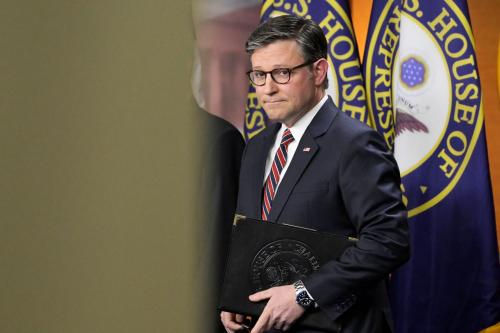Will 2013 be a great year—the year economic recovery picked up steam and our paralyzed democracy began to function constructively again? Or will it be a year of tragically unnecessary lost opportunity? The choice is up to our newly re-elected leaders and the public they represent.
The pace of economic growth and job creation appears poised to accelerate in 2013. Housing markets are finally reviving with a significant number of new starts and rising home prices in many areas. New life in the housing market is good news for sellers of home furnishings, as well as for consumer confidence and job mobility. State and local governments, whose fiscal woes and layoffs have been dragging down other sectors, have turned the corner and returned to solvency. Some manufacturers have tired of dealing with the strains of out-sourcing and are starting to bring jobs home. America’s much-vaunted ingenuity and entrepreneurial talent gives no evidence of flagging. Even a devastating recession could not squelch exploding connectivity and the social media revolution. Banks and companies are holding plenty of cash they need to put to work. The Fed is guaranteeing rock-bottom interest rates for the foreseeable future. Inflation is subdued. Energy prices are down and domestic production is surging. Most signs point to better times ahead—except for a dysfunctional government threatening to make two disastrous mistakes.
The first mistake would be to overwhelm the positive forces by administering the strong dose of fiscal austerity inherent in the tax increases and mindless spending cuts of the “fiscal cliff.” Austerity is absolutely the wrong prescription for a still-fragile recovery—how many European examples do we need to learn that lesson? Moreover, proving that the U.S. government is so paralyzed by partisan warfare that it is unable to avoid crashing into its own artificial barrier will undermine confidence of consumers, investors, and markets here and abroad. Even though the economic consequences of going over the “cliff” would be small if a deal were reached before most of the tax increases and spending cuts took effect, the psychological fall-out could be dire. Why should anyone believe that failure to avoid the “cliff” would not be followed by another debt ceiling debacle and trench warfare over appropriations when the continuing resolution funding government agencies runs out in March?
Even if the “cliff” crisis is avoided by cobbling together a hasty deal, the more serious mistake would be failure follow-up with policies to keep national debt from rising faster than the economy can grow. Remember that the “cliff” was an artificial crisis designed to force political leaders to agree on a compromise that would stabilize future debt. The fundamental danger to future prosperity is that federal spending, driven by promises made long ago to a rapidly growing number of retirees with rising health care costs, will overwhelm inadequate revenues and force the government to borrow more and more every year.
We have time to fix the debt problem—gradually and sensibly—if we start now. It would be really stupid to get past the artificial problem and ignore the real danger. But to get the real job done the two warring political parties will have to stop blaming each other and hammer out a serious solution together. Getting past the “cliff’ is just the first indication of whether we have elected a set of leaders capable of solving problems.
The Brookings Institution is committed to quality, independence, and impact.
We are supported by a diverse array of funders. In line with our values and policies, each Brookings publication represents the sole views of its author(s).




Commentary
Lost Opportunity for Jobs and Growth
December 28, 2012